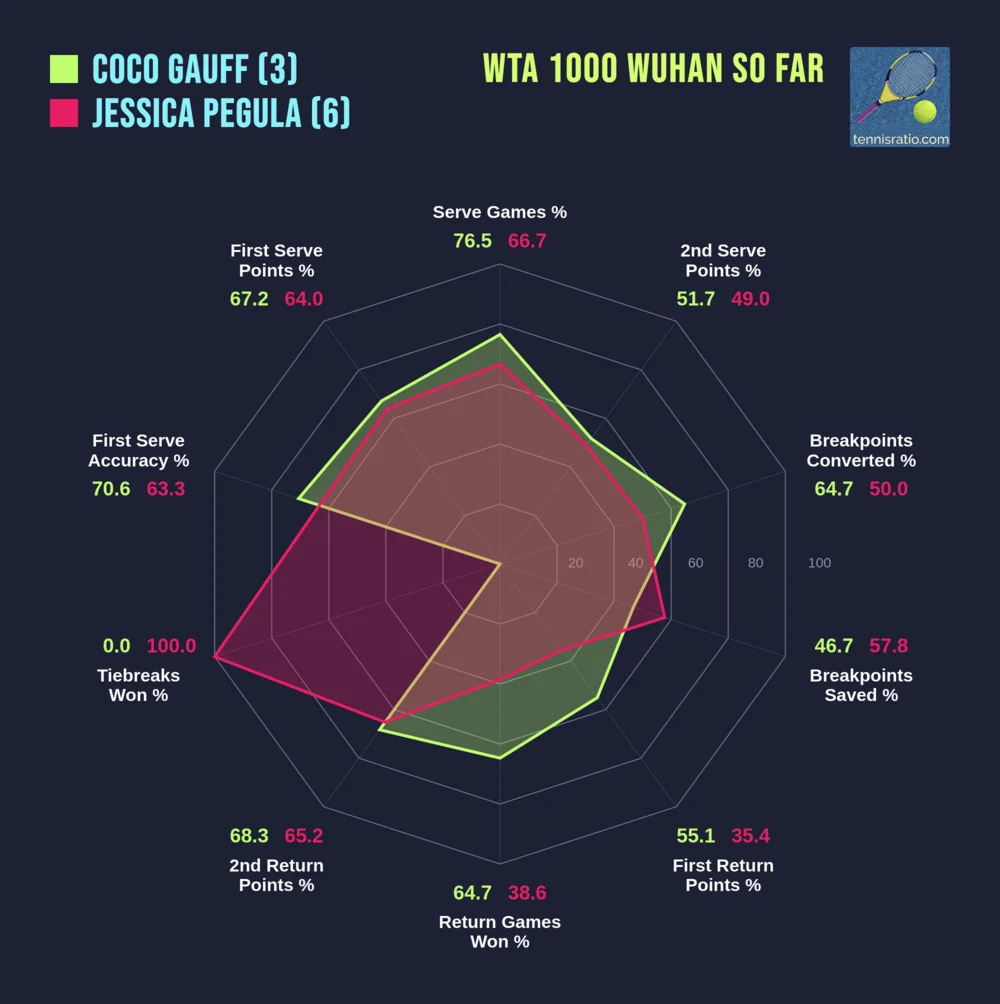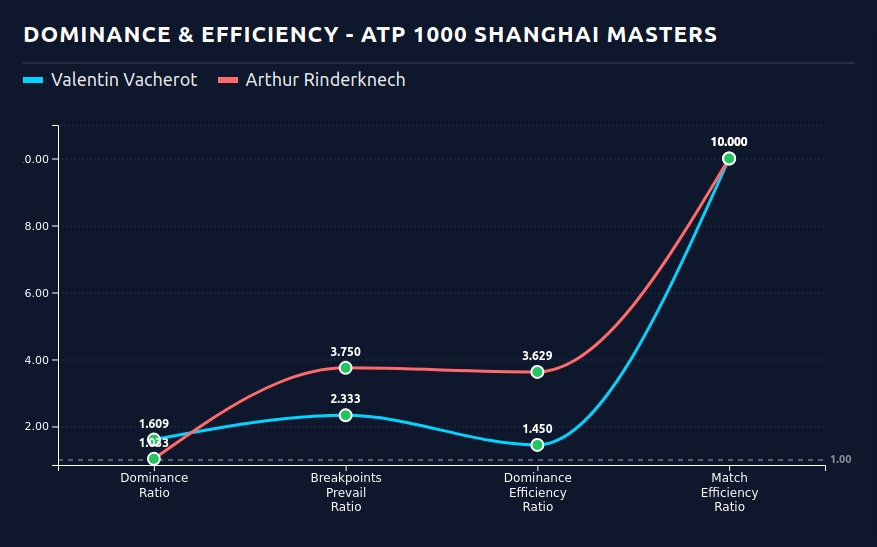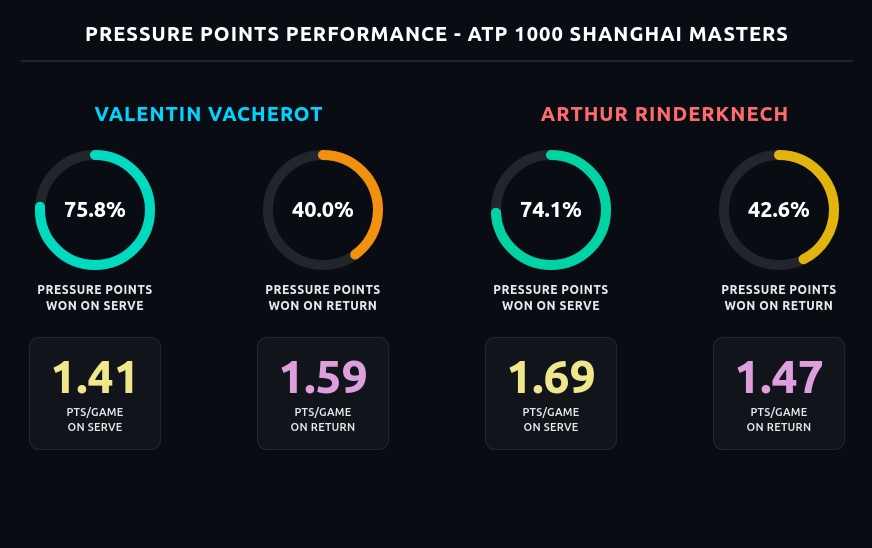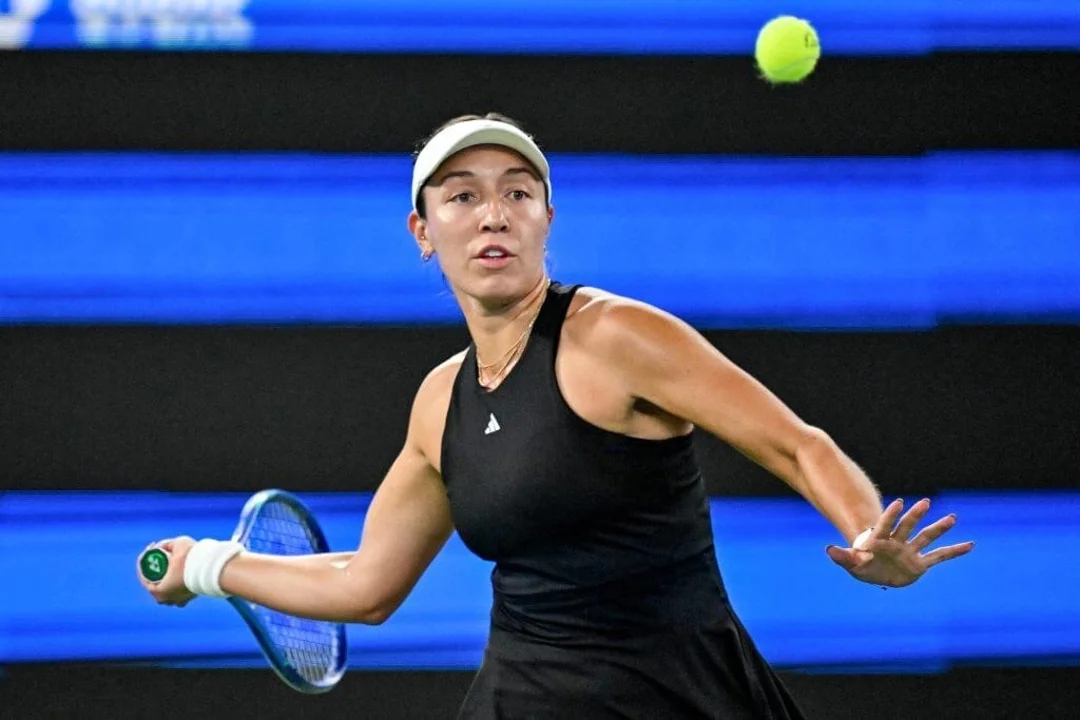Saturday's semifinals at the WTA 1000 in Wuhan produced contrasting storylines as Jessica Pegula authored one of the most dramatic comebacks of the season to end Aryna Sabalenka's historic winning streak, while Coco Gauff battled through serving struggles to overcome Jasmine Paolini. The sixth seed rallied from a set down and saved match points to stun the world number one 2-6, 6-4, 7-6(2) in two hours and 19 minutes, snapping Sabalenka's perfect 20-0 Wuhan record. Gauff secured her spot in the final with a scrappy 6-4, 6-3 victory over Paolini in a match defined by 11 consecutive breaks of serve.
Pegula ends Sabalenka's Wuhan dominance
Jessica Pegula delivered one of her most remarkable performances of the season becoming the first player to defeat Aryna Sabalenka in Wuhan, completing a stunning comeback from 2-5 down in the final set. The 31-year-old American had lost four consecutive matches to Sabalenka entering Saturday's clash, including their US Open semifinal meeting just five weeks ago. That pattern appeared set to continue when Sabalenka dominated the opening set, breaking Pegula's serve to claim it 6-2 in just 38 minutes.
Pegula steadied herself in the second set with disciplined counterpunching and improved return statistics. She won 52 percent of Sabalenka's second-serve points compared to just 32 percent in the opener, allowing her to turn momentum in her favor. The American broke serve twice to level the match at one set apiece, setting up a deciding set that would produce extraordinary drama. Sabalenka appeared in complete control when she surged to a 5-2 lead and served for the match at 5-4. However, Pegula broke back and suddenly the complexion shifted entirely.
The final set featured remarkable swings as Pegula won four consecutive games from 2-5 down to reach 6-5 and serve for the match herself. In a tension-filled 12th game lasting five deuces, Pegula served four double faults including one on her first match point and another on the final break point. The American had two match points at 6-5 but Sabalenka saved both to force a tiebreak. In the breaker, the Belarusian's forehand faltered at the crucial moment as Pegula raced through it 7-2 to complete one of the most significant victories of the season. The American has worked really hard to put this upset and showed her impressive resilience once again. She came back form almost the lost position in third set and has not discouraged herself after wasting two matchpoints on own serve. It was Sabalenka who completely lost the plot in the decisive tiebreak though, not referring to her proper level during the unusual collapse in last set.
Gauff survives break-fest against Paolini
Coco Gauff reached her first Wuhan final with a straight-sets victory over Jasmine Paolini, though the scoreline belied the scrappy nature of the encounter. The 21-year-old American secured her first win in four meetings this year against the Italian seventh seed, prevailing 6-4, 6-3 in one hour and 22 minutes. The match will be remembered for an extraordinary sequence of 11 consecutive breaks of serve spanning both sets, exposing severe service vulnerabilities from both players.
Gauff committed seven double faults throughout the match which matched her average throughout whole the season and saved just one of six break points faced, yet her superior return game proved decisive. The American broke Paolini's serve seven times from nine opportunities, including three consecutive breaks during the chaotic stretch that defined the match. Both players held serve for the opening five games before the break-fest commenced. Gauff seized the crucial moment when she held serve at 5-4 to claim the opening set, ending the sequence of five consecutive breaks.
The second set followed an identical pattern with service holds proving nearly impossible. Paolini broke early to lead 3-2, but Gauff immediately struck back and finally consolidated a hold for 4-3, the first time in six service games. The breakthrough came courtesy of a cleverly executed dropshot that caught the Italian off guard. From that point, Gauff seized control by breaking once more before serving out the match with a perfectly placed backhand volley. Paolini's shots were very much incalibrated on Saturday. Not just serve, but also open play was a liability for the Italian who misfired lots of shots, including the easy ones during rallies. Despite winning just 53% of first-serve points and very poor 17% on second serve (just 2 points out of 12), Gauff's return statistics compensated for her service struggles. She won 60% of first return points and an impressive 78% on second return.
Sunday's Final
The all-American final will see Pegula and Gauff meet for the seventh time, with Pegula holding a 4-2 head-to-head advantage. Gauff has dropped just 16 games en route to the championship match, the fewest by any player since the tournament's inception in 2014. It's a huge contrast to Pegula's overload, who approached the final after playing 8 consecutive three-setters, already including the matches from Beijing last week, where both made a run into semifinals. However, that was already one of arguments dragging down Pegula's chances before Sabalenka clash which occured to be no issue at the end, being overshadowed by the great endurance and fighting spirit of the more experienced of finalists.
Gauff enjoyed quite a formidable path in a draw, which was very stacked in other parts - especially in top half. Paolini was the only top 50 player on her road to final. That might be one of the reason of quite huge discrepancy of statistical comparison between both from their matches played in Wuhan so far. Despite poor serving performance in semifinals, Gauff won 10% more of service games (76 to 66), and about 3% more of first serve (67 to 64) and second serve (52 to 49) points. The advantage in return stats in huge - Gauff was lethal returning first serve of her opponents (55% to Pegula's 35%) and won exceptional 64.7% of return games in Wuhan (to Pegula's 38.6%) which is the biggest difference between both finalists. Both were similarly efficient in attacking second return - 68% to 65% for Gauff.

This year's Roland Garros champiandon was also more dominant in terms of creating and winning breakpoints (dominance & efficiency chart). Pegula needed to face almost whole one pressure point on average each service game (2.23 to 1.32). Both produced more than 2 pressure points on average in return games, with another significant advantage of Gauff (2.41 to 2.07). All those stats including with Pegula's fatigue can indicate Gauff as a favorite, however today's remarkable comeback of the world number six which ended Sabalenka's undefeated run of 20 victories in Wuhan suggests to not write-off her chances at any point.


